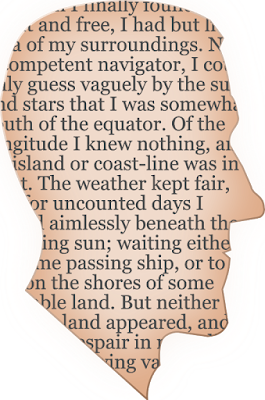 |
| Credit: Studio Hades/Openclipart.org |
I hope you had a chance to check out last week’s post that featured guest blogger L.G. Keltner. She gave a lot of really great details about her Self-Help 101 novella series, including details on the writing process. Speaking of which, I want to talk about a part of the writing process this evening, one that actually comes after the book releases—post-publication editing.
I was reading an article a while back from a Star Trek fan site. It talked about an editing error in the most recent Blu-ray edition of Star Trek II: The Wrath of Khan Director’s Cut. Apparently, the error was in the opening scene of the film where the wrong graphic information on the bridge simulator’s screen was used. The mistake was discovered by hardcore Star Trek fans after the Blu-ray released. I’m not sure how big Hollywood production companies handle the ones who overlook these things but I can imagine they are much less forgiving than indie film makers and self-published authors.
Well, a self-published author is as forgiving as the author forgives him or herself. But the audience can still catch the error. Yet no author should beat him or herself up for it. We’re all human and so we all make mistakes. But when your audience brings up mistakes you’ve made in your book, you should thank them, apologise for overlooking it and say you’ll compensate them in any way you can. Ideally, you should re-revise your book and then re-launch it offering free copies to whoever bought the original version. Maybe that’s not feasible for all authors but every attempt should be made to compensate.
I’m not saying I’m going to lay back and publish my future work and let my readers contact me about mistakes I overlook in my book. I’ll definitely welcome the comments. What I’m saying is that authors, especially self-publishing ones who can’t afford editors, should work to their advantage their readers’ criticism. It’s an opportunity for the author to correct those errors and relaunch a better edition of the book. As I said, we all make mistakes. Besides, some of the most famous writers’ books have contained early edition mistakes, including H.P. Lovecraft’s.
In order for mistakes not to bite too hard after a book launch, probably the best thing to do, especially if you don’t have an editor, is to launch a beta version first. And so before releasing the official version of your book, you can release a version for an audience you select to provide you feedback. I plan to do that with my next short fiction collection. My upcoming single short story book, however, I plan to launch without a beta since one to three bucks wouldn’t be near a loss for many people as 13 bucks would. If you see major or noticeable mistakes in “Circa Sixty Years Dead” then let me know and I can see about doing a relaunch for it and giving you a free copy of the corrected version. But before I can do anything with “Circa Sixty Years” I need to finish the book cover illustration.
Book Cover Illustration Progress Report
 |
| Credit: Steven Arellano Rose, Jr. |
I’ve darkened the landscape like I said I would a couple posts back and coloured in most of the face. Once I paint in the black sky with marker I’m going to go over all the coloured-penciled parts with a colourless pencil. A colourless pencil is not a regular black lead pencil like some people may think. It’s exactly what it’s termed: a pencil with no colour. It’s used to make the colours more solid. Open line strokes were a problem with my book cover illustration to Fool’s Illusion, a problem I’m trying to avoid here.
If everything goes according to plan, you’ll see a cover reveal next week. If that’s the case, the release of “Circa Sixty Years Dead” won’t be much further! So be here then for more updates. You can also stay up to date by visiting my Facebook author page or follow me at Twitter.
Until next time . . .
Comments
Post a Comment